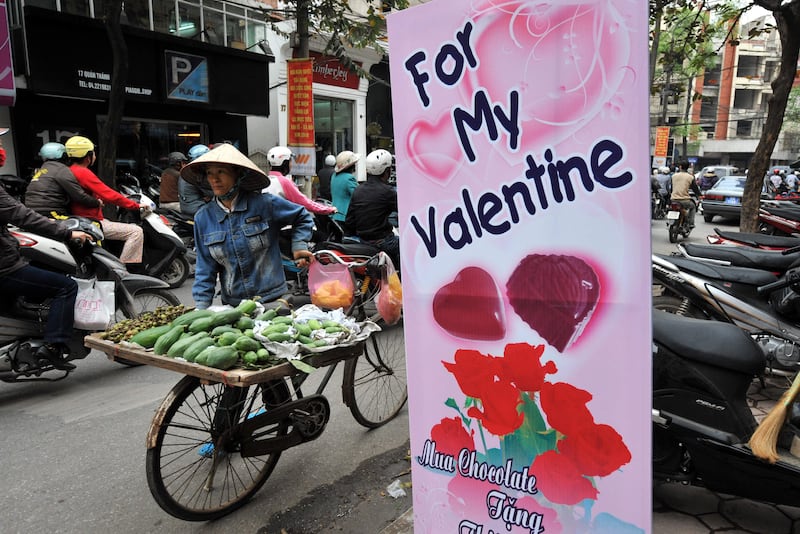Love, romantic, platonic, and familial, abounds in this episode of RFA Insider as Eugene and Amy cover Valentine’s Day, Lunar New Year and one RFA staffer’s story of being smuggled out of Tibet as a child.
Off Beat
Lobsang Gelek, a journalist in RFA’s Investigative team, hasn’t seen his family since he was 10. Now in his thirties, he comes on the podcast to explain why he hesitated to share his story publicly, calling it unremarkable among the Tibetan exile community.
Yet, at the age of 10, Lobsang walked from Shigatse, Tibet, to Kathmandu, the center of Nepal. The journey took a month, required him to travel under cover of darkness and cross a treacherous mountain pass in the Himalayas cut across steep glaciers.
His father had seen him off with a sleeping bag, snow goggles, provisions and lies about a “short trip” to India, knowing that sending his son away for a better life meant they would likely never reunite.
Lobsang discusses his childhood memories in Tibet, the harrowing details of his escape and his feelings towards his father making that decision, especially now as he approaches parenthood himself.
Lobsang also recently took a work trip to India where in an RFA exclusive, he interviewed Gyalo Thondup, the elder brother of the Dalai Lama, just weeks before his death, about his involvement in a CIA-backed campaign to support Tibetan fighters in their battle for independence. You can read that story here.
Podcast Free Asia
The contact information bumper in each episode of RFA Insider is now obsolete, because our website no longer supports the reader comment feature. Additionally, most of the comments we do get come from YouTube. So we thought it would be a good idea to re-record some lines and make a new bumper, which we are proud to share with you for the first time here!
The Rundown
This week’s Rundown begins in China, where thousands of temple-goers queued for hours in winter weather to pray for luck and wealth in the lunar new year. While one might imagine these temple-goers to be from the older generations, data from Chinese travel agencies shows that young people are the ones booking temple visits en masse.
Commentators say that youth in China are increasingly turning to temples, and religion as a whole, in response to an increasingly unstable future. In post-pandemic China, the youth unemployment rate remains worryingly high, and combined with a flagging economy, has increasingly driven young people to seek solace in burning incense and purchasing prayer bracelets.
With Valentine’s Day upon us, RFA Insider offers a glimpse of how countries in RFA’s coverage areas celebrate in the holiday.
While little information exists for North Korea, it can be inferred that the 2020 Rejection of Reactionary Thought and Culture Act, which bans activities deemed to be capitalist or South Korean, effectively eradicates any public Valentine’s Day festivities.
Meanwhile the South Korean and Japanese versions of the holiday, wherein the women buy chocolate for the men in their lives, seems to have made inroads to other parts of Asia, including China and Vietnam, according to media outlets Eugene was able to quickly find in a Google search.
But the South Korean custom of having special couple days on the 14th of EVERY month seems not to have been adopted elsewhere.

In Southeast Asia, Vietnam and Laos celebrate with holiday decorations and special business promotions, as did a pre-coup Myanmar. On the other hand, the Cambodian government called upon its people to celebrate the holiday in accordance with Cambodia’s traditions – however, a 2024 poll showed that public interest in the holiday had fallen off over the last 15 years.
In China, the Qixi festival, celebrated in late August, is a more lovey-dovey holiday for couples compared to Valentine’s Day. Derived from a mythology of star-crossed lovers, the Qixi festival is a day for Chinese couples to celebrate their love, whether through gifts marketed specifically for the holiday, or even by timing their weddings with the festival for good luck.
